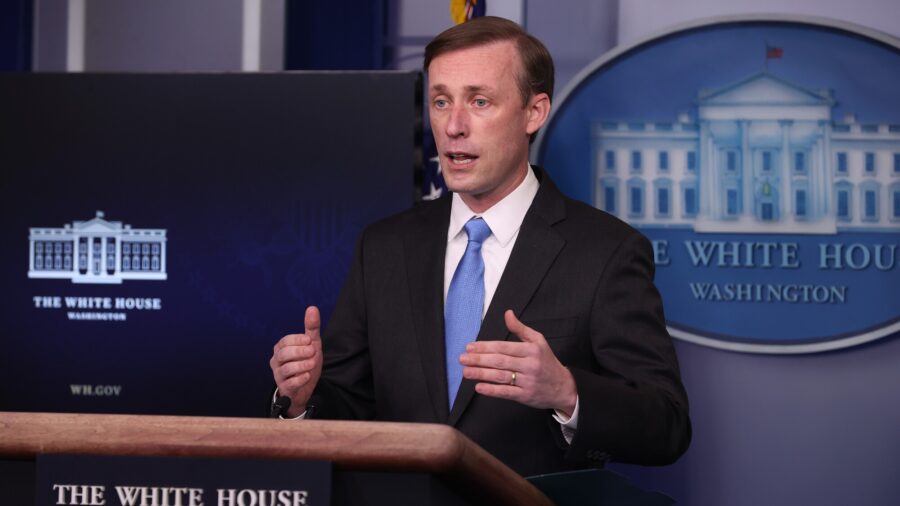Trade will not play a central role when the Washington delegation meets with their China counterparts in Alaska next week, National Security Adviser Jake Sullivan told reporters on March 12.
Sullivan and Secretary of State Antony Blinken will join talks with China’s foreign minister Wang Yi and senior foreign policy diplomat Yang Jiechi on March 18, marking the two countries’ first top-level meeting in person since President Joe Biden took office.
Asked about trade sanctions on China, he said that he doesn’t expect “the phase one trade deal is going to be a major topic of conversation next week.”
“This is our effort to communicate clearly to the Chinese government how the United States intends to proceed at a strategic level, what we believe our fundamental interests and values are, and what our concerns with their activities are,” Sullivan said in a press briefing at the White House.
The United States will voice concerns about the regime’s actions on Hong Kong, Xinjiang, Taiwan, and issues raised by Asian allies on Friday—Beijing’s “coercion of Australia, their harassment around the Senkaku Islands, their aggression on the border with India,” Sullivan said.
“So this will stay more in that zone than get into the details of questions around tariffs or export controls,” he said.
He added that they will convey the message “at a broad level” that the administration will take action to protect U.S. technology from being used in ways that undermine American values or security.
“But in terms of the details of these issues, we have more work to do with our allies and partners to come up with a common approach, a joint approach, before we go sit down point by point with the Chinese government on these issues,” he said.
Biden held his first summit on Friday with leaders of Japan, India, and Australia, an informal alliance known as the “Quad.” Sullivan, during the press conference, said they “spoke to the competition of models between autocracy and democracy” and expressed confidence that “democracy is the best system” to meet with challenges of the 21st century.
The four leaders “made clear that none of them have any illusions about China,” according to Sullivan.
On March 11, the last day of China’s annual legislative meeting in Beijing, the regime’s 2,895-member Congress rubber-stamped a draft decision to control Hong Kong’s elections. The electoral overhaul will make sure only Beijing loyalists can govern the city, a move that U.S. State Department spokesperson Ned Price has described as “a direct attack on Hong Kong’s autonomy, its freedoms, and democratic processes.”
While Price said the administration “will certainly not pull any punches in discussing our areas of disagreement,” Beijing has signaled that it would not likely budge.
Zhao Lijian, China’s foreign ministry spokesperson, cast the persecution of Xinjiang’s Muslim-practising minorities—which the State Department in January recognized as a “genocide”—as “lies and disinformation.”
He warned the United States to “stop interfering in China’s Hong Kong affairs.”
“China will make its position clear,” he said in a regular press conference on Friday, adding that the meeting, “proposed by the U.S. side,” should “focus on cooperation.”
From The Epoch Times

